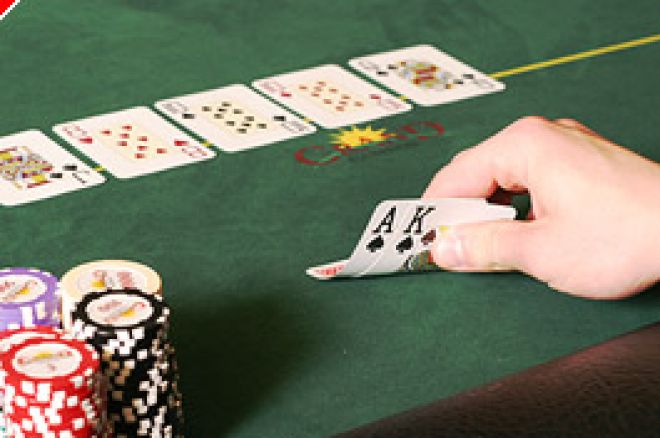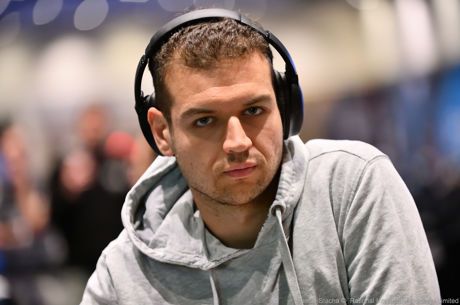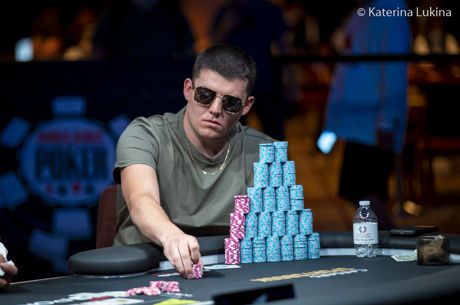Poker, Probabilities, and the Professor

In the fall of 2005, University of Georgia professor (of statistics) Lynne Seymour offered an innovative freshmen course "How to Gamble If You Must," which dealt with poker and other card games. The one-unit course counts toward graduation.
Faculty at the university are assigned one-unit freshmen seminars on a rotating basis and are encouraged to get creative. They did so with courses on Bob Dylan, Chocolate Science, and the History of Major League Baseball. Like Dr. Seymour's class, they offer a fun introduction to more serious matters. In her case, she parlayed the poker craze among college students into an introduction to probability theory and statistics.
"Statistics is math with a purpose," she says.
The premise of the course: if you're going to play, play right. It drew 13 men and two women and featured stud poker and Texas Hold 'em games with a Hold 'em tournament at the end of the class. The tournament winner was excused from having to do a required written paper. The class champ was a young man who correctly put it all together: probabilities, aggressiveness, and optimal betting.
The students were typical freshman, 18 and 19 years old. All had some poker experience, mostly from home and dorm games. Some played online. A few were already savvy about the math but most were not.
The class consisted of lectures, then practice. "After bringing up some of the probabilities, I would say, 'Let's just play and see what's going on,'" Dr. Seymour says. Then a poker game would begin. They played five card stud and Texas Hold 'em.
According to Lynne, "They found stud to be harder than Hold 'em. They were surprised to learn that the probability of having a pair in the first five cards is slightly less than 50% and slightly more than 50% to have a hand full of nothing," she reports.
Was the course all about the numbers and just about the numbers? Not at all. How about this from a professor of probability/math/statistics. "Poker is a game of psychology. They soon learned that probability is not certainty."
She admits to not being much of a poker player. "I play on occasion," she says. "I played some poker in grad school. Nickel and dime stuff." She is proud of her biggest pot, $32.
Does she play online? "Oh, no. Playing online is like lecturing to a camera. There is just no passion in it for me. I can't read other players. You just have to play probabilities."
Lynne holds a Ph. D. in statistics from the University of North Carolina in Chapel Hill. In 2004 she had a visiting professorship gig in the Netherlands. She has presented scientific papers in Italy and France and is Associate Editor of the Journal of Statistical Computation and Simulation.
She came to games of chance through her upbringing in Phenix City, Alabama, known in the 30's, 40's, and 50's as a hotbed of vice. Life Magazine called it, "the wickedest city in the United States." Before Las Vegas claimed the name, it was also known as "Sin City, USA."
Sitting just eight miles from Fort Benning, Georgia, Phenix City drew the GI's and others to wide open gambling, prostitution, and drugs. "There was a big local Mafia in town," she says, "and they took advantage of the soldiers."
As a kid Lynne remembers rolling dice with her great-grandfather who later went to jail for bootlegging and racketeering. "He ran a dress shop in Columbus, Georgia that was a front for gambling. He was famous for making loaded dice," she says.
"I played with those trick dice," she reports with a laugh. "They were mercury loaded. You put them in your pocket and let them sit about ten minutes. On the first roll, the number was random. On the second roll, a 7 came up. Then they went random again. Let them sit 10 minutes, and repeat the cycle."
Is this the origin of her interest in math? In statistics? In poker probabilities?
"It might be," she admits. "It just might be."








